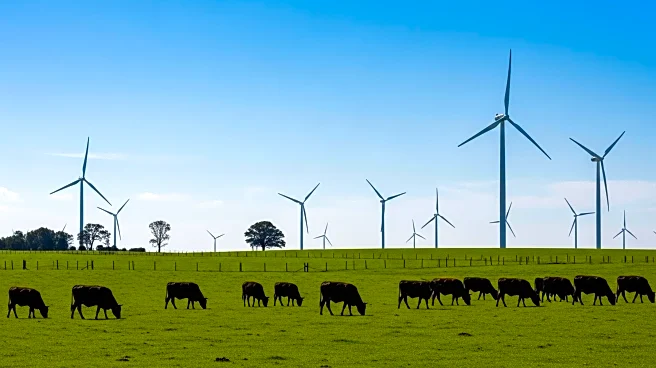What is the story about?
What's Happening?
The Food and Agriculture Organization of the United Nations (FAO) recently held its second Global Conference on Sustainable Livestock Transformation in Rome. The event, which ran from September 29 to October 1, focused on the critical role of livestock in supporting the livelihoods of approximately 1.3 billion people worldwide. The conference emphasized the importance of livestock not only in food production but also as a primary source of income and a financial safety net for many in low- and middle-income countries. The sector contributes significantly to global food security, providing about one-third of the global protein intake. The conference aimed to shift from dialogue to action, promoting sustainable practices in livestock systems to ensure better production, nutrition, environment, and life quality. Over 1,000 stakeholders, including policymakers, farmers, and industry representatives, participated to discuss and showcase actionable solutions for sustainable livestock transformation.
Why It's Important?
The conference underscores the vital role of livestock in global food security and economic stability, particularly in developing regions. By focusing on sustainable practices, the FAO aims to address environmental impacts, public health risks, and animal welfare concerns associated with livestock production. The event highlights the potential for collaboration among diverse stakeholders to transform livestock systems sustainably. This transformation is crucial as it presents opportunities for innovation and resilience in the face of economic and environmental challenges. The outcomes of this conference could lead to significant advancements in sustainable agriculture, benefiting both producers and consumers by ensuring a stable supply of nutritious food while protecting the environment.
What's Next?
Following the conference, the FAO plans to continue supporting countries in implementing sustainable livestock practices through various initiatives and partnerships. These include the FAO Investment Centre, Global Environment Facility, and Green Climate Fund. The organization will also focus on pandemic prevention, tackling antimicrobial resistance, and addressing zoonotic diseases. Upcoming initiatives include the Global Strategy for the Prevention and Control of High Pathogenicity Avian Influenza and efforts to eradicate Peste des Petits Ruminants by 2030. The FAO will launch the Global Challenge Programme for Transboundary Animal Diseases to protect animal health and strengthen livestock production globally.
Beyond the Headlines
The conference highlights the ethical and environmental dimensions of livestock production, emphasizing the need for humane and sustainable practices. It also points to the potential for digital technologies and scientific advancements to revolutionize the sector. By fostering innovation and collaboration, the FAO aims to create resilient livestock systems that can withstand economic and environmental shocks, ultimately contributing to global stability and prosperity.
















